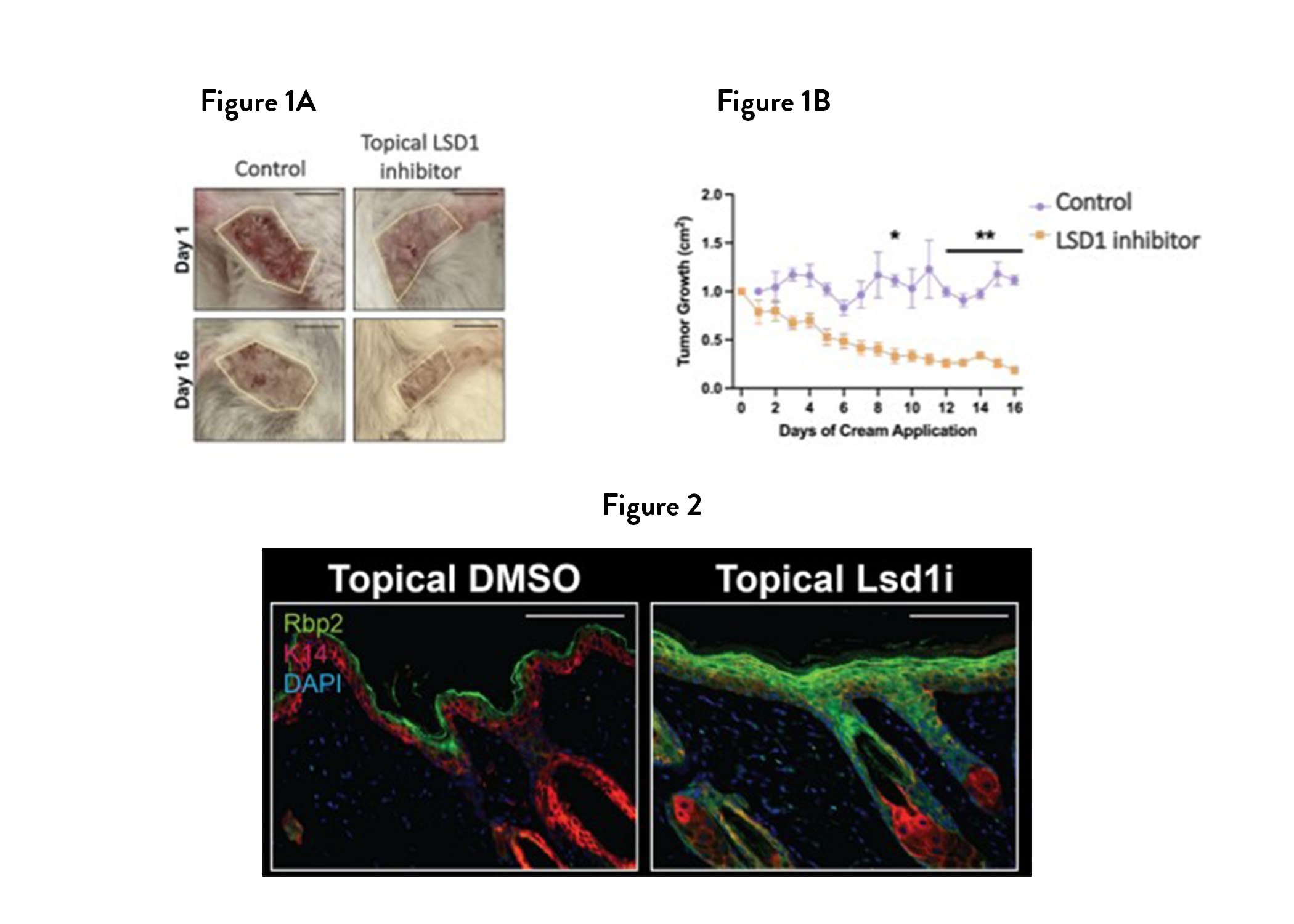Topical LSD1 inhibition can treat skin diseases that include cutaneous squamous cell carcinoma (cSCC), actinic keratoses, and viral warts.
Problem:
Current treatment options (i.e. cryotherapy, laser therapy, surgery, chemotherapy) for skin diseases such as cSCC, actinic keratoses, and viral warts are often non-targeted and destructive, and can cause toxicity and damage to local tissue. In addition, treatment of larger and deeper lesions is associated with permanent scarring or disfigurement.
Solution:
The inventors developed a topical targeted LSD1 inhibitor that effectively treats skin lesions without harming local tissue.
Technology:
LSD1 is a histone demethylase that regulates a wide range of physiological processes including stem cell maintenance and differentiation. Dysregulation of LSD1 can be oncogenic and is overexpressed in a variety of cancers. The inventors demonstrated that topical LSD1 inhibition suppressed cSCC in mice. Additionally, LSD1 inhibition activated retinoid signaling. As tretinoin (activator of retinoid signaling) is used for multiple skin conditions such as acne, psoriasis, actinic keratosis, and viral warts, topical LSD1 inhibition may be useful for skin diseases other than cancer.
Advantages:
- Limited toxicity due to local application.
- Non-invasive treatment of various skin diseases.

Figure 1. (A) Representative images of cSCC mouse model treated with either control or topical LSD1 inhibitor. (B) Tumor growth graph of cSCC mouse model treated with either control or topical LSD1 inhibitor.
Figure 2. Immunofluorescence staining of mouse epidermis treated with either DMSO or topical LSD1 inhibitor. Rbp2 stains for retinoic acid signaling target and keratin 14 (K14) stains for basal skin keratinocytes of the epidermis.
Stage of Development:
- Proof of concept in relevant cSCC mouse model
Case ID:
24-10603-TpNCS
Web Published:
11/8/2023
Patent Information:
| App Type |
Country |
Serial No. |
Patent No. |
File Date |
Issued Date |
Expire Date |